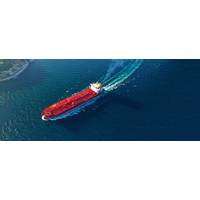EU Gas Talks Could Yield Pact on Friday
EU says expects Ukraine to remain reliable transit route.
High-level talks in Brussels between Russia, Ukraine and the European Commission are expected to clinch a deal late on Friday to secure winter gas supplies for Ukraine.
Tensions between Russia, Europe's biggest gas supplier, and Ukraine, the main transit route to the EU, have been high since Moscow's seizure of Crimea in March 2014.
Against that backdrop, Moscow and Kiev have been haggling over gas prices and in the latest flare-up, Moscow in July cut off supplies to Kiev.
The Commission and the Russian energy ministry said they were optimistic that both Moscow and Kiev were ready for a deal.
Appetite for an agreement has increased on all sides as Gazprom fights to defend market share in Europe and storage levels have started to fall in the EU, which relies on Russia for roughly one third of its gas, around half of which transits Ukraine.
Figures from Gas Infrastructure Europe show gas stocks are around 80 percent full across the 28 EU states, 3 percent below a year ago in the run-up to what proved to be a mild winter.
Although officials said the framework of a deal was in place following bilateral talks earlier this month, a sticking point has been over who will pay, as well as the price. EU sources say Germany and the European Commission could provide some funds.
Ukraine has said that $220 per 1,000 cubic metres (tcm) was an acceptable price. Gazprom has said its average 2015 price for EU companies with long-term deals is $235-$242 per tcm.
Russia on Friday signed a decree setting the price for Ukraine, saying only it was equal to those for EU nations that border Ukraine.
A long-term 10-year contract between Russia and Ukraine was reached in 2009 after a previous pricing war led to supply cuts to Ukraine and a subsequent dwindling in volumes for the EU.
The cut-offs to Ukraine in 2014 and this year have not so far led to knock-on supply disruptions and the European Commission has said it expects Ukraine to remain a reliable transit route.
Russia, however, has been seeking to bypass Ukraine. Earlier this month, it signed a shareholders' agreement on an expansion of the Nord Stream pipeline that carries Russian gas straight to Germany.
Ukraine draws on gas in underground storage to safeguard its own supply in winter and ensure there are no disruptions to the transit of gas across the country to EU clients.
It had built up 14.9 billion cubic metres (bcm) of gas in underground storage as of Sept. 11 and wants to store 18-19 bcm for winter by mid-October.
EU sources, speaking on condition of anonymity, said closed-door EU gas talks earlier this week predicted levels would fall short at around 16.5 bcm.
By Barbara Lewis
